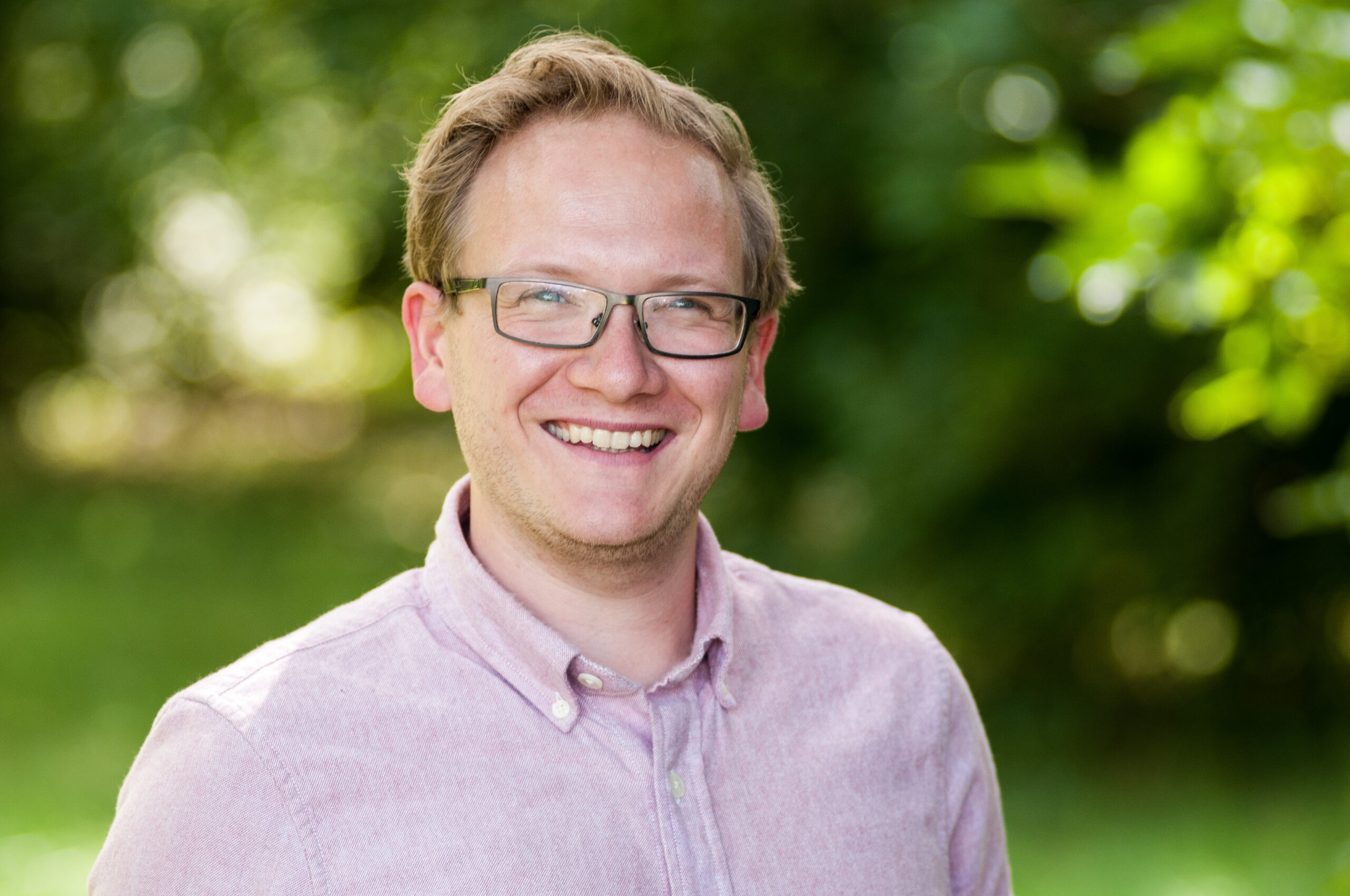NEWTON, Kansas (Mennonite Mission Network) — On the morning of Sept. 11, 2001, Kristen Mathies recalled feeling the same way she did nearly every morning while walking north to the office in Midtown East, New York City. "[I felt] that I was the luckiest person in the world to be in this fascinating city," she said. "Learning so much, seeing what was happening with the U.N., blue sky, all the cliches."
As one of the participants of the Mennonite Voluntary Service (MVS) unit in Manhattan, a borough of New York City, her placement was with the Mennonite Central Committee (MCC) United Nations office as an associate staffer. In addition to general office management, Mathies sat in on meetings that mostly pertained to AIDS in Africa and war in Congo. On a day-to-day basis, she worked alongside her colleagues to, in her words, "add good things to the U.N. process."
While there were occasions when her placement’s peace advocacy felt like a whisper in the bustle of sprawling bureaucracy, Mathies loved her service placement.
There was no TV or radio in the MCC U.N. office, so Mathies’ first clue that something was wrong came through her email inbox. The message, sent by a friend from her seminary days, simply asked if she was all right. Then the phone started ringing. First, it was the executive director of MCC. Next, a call from a friend in the financial district. As people in the office began to get bits of information about what was happening just four miles southwest of them, Mathies began to see debris and plumes of smoke rising up beyond the buildings in that direction. Soon, security evacuated her office, and Mathies found herself on the street. Waves of people, dusty and dirty, were walking north away from the financial district. Mathies recalled seeing a car drive by with "dust and debris, inches thick all over it," heading north as well. She stopped outside an electronics store and joined the growing crowd that was watching the TVs in the display window. Each one displayed a different angle of what was unfolding a few miles away. Mathies then began to head toward the MVS unit and Menno House, where she started her morning a few hours before.
 The MVS Manhattan unit on the front stoop of Menno House in July, 2002. L-R: Tom Smith, Kristen Mathies, Jessica Penner, Rob Winter.
The MVS Manhattan unit on the front stoop of Menno House in July, 2002. L-R: Tom Smith, Kristen Mathies, Jessica Penner, Rob Winter.
The Manhattan MVS unit, which operated from 1995-2021, was hosted in Menno House, a residence and guest house ministry of Manhattan Mennonite Fellowship (MMF) in Gramercy Park. In addition to the MVS unit participants, Menno House hosted other volunteers, students, and nonprofit workers, as well as short-term visitors. Gina Holsopple, who worked as Menno House’s building manager from 2001-2003, said that, while many specifics of those "really intense couple of years" are a bit blurry two decades later, the events of Sept. 11, 2001, stand out in her mind "very, very clearly."
Holsopple was usually one of the first people awake at Menno House, helping to make sure everyone else got up and off to their daily routines before she settled into hers. The other early riser in the building was one of the long-term residents: a firefighter who worked shifts at the nearby firehouse. Sept. 11, 2001, was his day off. Shortly after most of the residents had cleared out for the day, Holsopple remembers him coming up to her and telling her to watch the TV. "You have to come down," he said. "You have to see what’s happening." Soon after, he jumped on his bike and headed to the fire station.
And then, save for Holsopple and the blaring TV, the house was empty. Holsopple got to work. "I made soup. I made cookies. And I had a list of where everybody was," she recalled. The subways weren’t running. The streets around Menno House had been closed off to allow for ambulance traffic to the nearby hospitals. Everyone who had left the house was now either stuck in whichever borough their placement was in, or walking home, like Mathies.
Holsopple was one of the only house residents who had a cell phone. Between her cell and the house phone, she recalled spending the day making calls to work locations and service placements, keeping a running list of the whereabouts of the MVSers and house residents who spent the rest of the day trying to get back to Menno House. Holsopple would finally get in touch with the last resident on her list twenty-four hours later — the firefighter who had left for the fire house on his bike. Everyone connected with the house was safe.
Throughout the day, people filtered into Menno House — not just MVS participants and residents, but MMF church members and friends who weren’t able to go home.
"We had a meal together," said Holsopple. "We prayed. We just were together in that moment."
MMF organized a prayer vigil, and the church’s Sunday service became a time for the congregation to gather, pray, and share. All the church members were safe, though some had worked close enough to Ground Zero that they had to run to escape debris. Everyone who attended the service was connected to someone who had been in the World Trade Center.
The next few days saw people all over the city coming together in a multitude of ways. Union Square, four blocks from Menno House, became a central point for memorials and vigils.
In addition to the "missing person" signs that covered walls and light poles "like leaves on trees," Mathies recalled, by the end of the week, there were other signs that began to blanket downtown —mall, black stickers stating, "Our grief is not a cry for war." Peace rallies and marches were held across the city, but "[they] didn’t get a lot of play in the news," Mathies said. On Oct. 7, an international military coalition, led by the U.S., invaded Afghanistan.
The week after Sept. 11, 2001, the MVS participants and residents of Menno House came together to share in their weekly ‘Soup Tuesday’ potluck. While the potluck had been a weekly Menno House event before Sept. 11, the meals after that harrowing Tuesday took on a new, deeply vital role in the community feel of the house. They became the connecting thread for a group with different schedules, jobs, and social circles.
"[The potluck] became an essential piece of what we did and how we existed together," said Holsopple. "We had to check in with each other once a week, and everybody was committed to it."
When people were preparing to move on from Menno House, the potlucks were the way the group sent them out. And when newcomers moved into the house, the weekly meals welcomed them into the community.
"It was, wildly, the sacred time in a lot of busy worlds that we held for each other," Holsopple said.
 Menno House’s weekly potluck, ‘Soup Tuesday,’ in the fall of 2001. L-R: Gina Holsopple, Edgar Hayes, Lana Thyren, Skip Kempe, Sena Bender, Ann Rader, Mike Yoder, Kristen Mathies, Nicole Witen.
Menno House’s weekly potluck, ‘Soup Tuesday,’ in the fall of 2001. L-R: Gina Holsopple, Edgar Hayes, Lana Thyren, Skip Kempe, Sena Bender, Ann Rader, Mike Yoder, Kristen Mathies, Nicole Witen.
Jessica Penner, who joined the MVS Manhattan unit in summer 2002, was one of those newcomers. While the MVS participants from the previous year completed their terms and slowly filtered out of Menno House, Penner and the rest of the first post-9/11 participants found that the events of that day cast a long shadow of influence over their experiences.
Vigils were, again, held near Menno House, but this time, they were in recognition of the first anniversary of Sept. 11. The small black anti-war stickers around the neighborhood were now fewer in number and faded, but the peace rallies continued, with people protesting another impending conflict — the U.S. invasion of Iraq.
Penner’s service placement as administrative assistant for Pax Christi Metro New York (PCMNY) grew from opening and stuffing envelopes into helping organize peace protests during UN meetings and sites around New York City. She and other MVS participants attended rallies in Times Square and in Washington, DC. Despite the public outcry, a military coalition, led by the U.S., invaded Iraq on Mar. 19, 2003.
 Jessica Penner (middle, red stocking cap) with members of Manhattan Mennonite Fellowship protesting the U.S. invasion of Iraq in Washington, DC.
Jessica Penner (middle, red stocking cap) with members of Manhattan Mennonite Fellowship protesting the U.S. invasion of Iraq in Washington, DC.
"I think it’s so easy when those huge national [events] happen, that you can feel very helpless," she said. Instead, Penner drew inspiration from her fellow coworkers and volunteers at PCMNY, who continued to plan events to promote peaceful alternatives to war.
Penner and her husband, who also served as a participant in the Manhattan MVS unit, decided to stay in New York City after their MVS terms ended, and they continue to call the city home today.
Holsopple is an award-winning singer-songwriter and owner of Gina Marie Music Studio in Oswego, New York.
Mathies, now a high school teacher, encourages her students to seek out ways to volunteer and serve, both in their home communities, and in contexts different from their own.
In North America, she said, "there’s so much pressure to get the top marks, get into a good school and then go and start your career. Start saving and buying and acquiring and all of that."
Instead, Mathies explained, prioritizing relationships, shared learning, and concern for our worldwide community "is how we make a world of justice and peace on the small scale as individuals … but also as larger institutions like churches and countries.
We have to choose the human options rather than the purely economic options."








